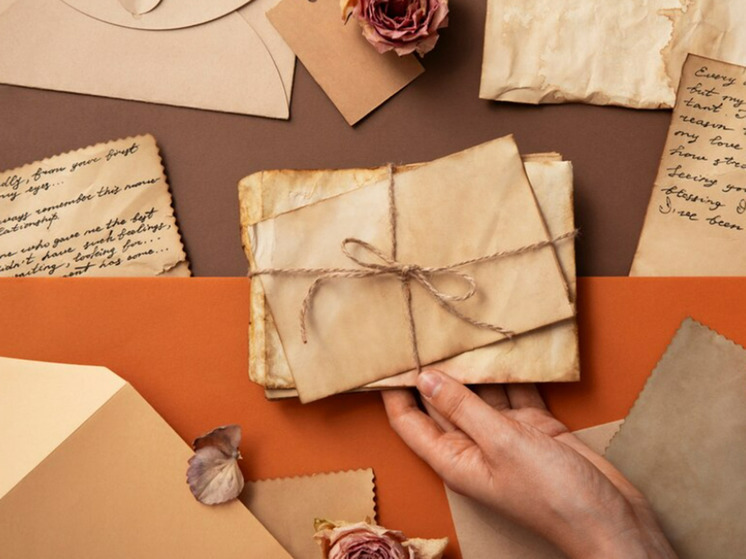Messages from their wives did not reach the French in English captivity
Unopened love letters of the 18th century addressed to French sailors have been read for the first time. Messages from loved ones of the crew of a captured ship during the Seven Years' War lay forgotten for centuries. And now they have become public.

A forgotten stack of love letters sent to French sailors more than 260 years ago but never before opened or read has been discovered among British naval archives, revealing intimate details of 18th-century married life, The Guardian writes.
< p>A remarkable cache of more than 100 letters was accidentally discovered at the National Archives at Kew by Renault Maurier, professor of European history at Cambridge University, who asked archivists if they could be opened so he could read them for the first time.
Inside, the scientist discovered deeply personal and often passionate messages intended for sailors who were captured in 1758 aboard a French warship during the Seven Years' War.
“I can't wait to get my hands on you,” — wrote the wife of one of the sailors, Anne Le Cerf, to her husband Jean Topsan, a phrase that can be translated as “hug” or “make love to you.” She signed her note “Your obedient wife, Nanette,” an affectionate nickname. Topsan, a non-commissioned officer, was imprisoned in England and will never receive this letter.
Marie Dubosc, another correspondent, wrote to her husband Louis Chambrelant, the first lieutenant of the captured warship: “I could spend the night writing to you… I am your forever faithful wife. Good night, my dear friend. It's midnight. I think it’s time for me to rest.” The couple never met again, as the wife died the following year in Le Havre, almost certainly before her husband was released.
The letters were intended for the crew of the Galatea, which was sailing from Bordeaux to Quebec when it was captured by a British ship and taken to Portsmouth, where they were imprisoned.
The French postal administration tried for months to deliver letters to the ship from the crew's loved ones, sending copies to French ports — as was common practice at the time — in the hope of intercepting the ship before it sailed. When he learned that the Galatea had been captured, the administration forwarded the letters to the Admiralty in London, hoping that they would be handed over to the prisoners.
Instead, having determined that the correspondence contained nothing of military value, the British authorities placed the unopened letters in storage, where they were forgotten for centuries until they were accidentally discovered by Professor Maurier.
“I ordered the box just out of curiosity,” Morier said. “There were three stacks of letters held together with tape. The letters were very small and sealed, so I asked the archivist if they could be opened, and he allowed it. I realized that I was the first person to read these very personal messages since they were written. Their intended recipients had no such chance. It was very emotional.”
Along with the «correspondence of lovers», the archive offers rare insight into sometimes tense family relationships during the war. The mother of one young sailor, Nicolas Quesnel, wrote him a letter complaining that he wrote more to his fiancée than to her. “Give my best wishes to Varen [shipmate],” the sailor’s mother wrote to her negligent son. “Only his wife tells me your news.”
The package also contains a letter from Quesnel’s fiancée, Marianne, in which she asks him to send his mother a note and stop embarrassing her. She would later write: “The black cloud has cleared, the letter your mother received from you is uplifting.”
Professor Maurier, who was conducting genealogical research on sailors, discovered that Quesnel survived his imprisonment and later joined the to the crew of a transatlantic slave ship in the 1760s.
Fifty-nine percent of the letters were written by women, Maurier said, and they “destroy the old-fashioned idea that war is all about men. While their men were away, women ran the household and made the most important economic and political decisions.”
The scholar added: “These letters are about a universal human experience and are not unique to France or the 18th century. They show how we all cope with life's big challenges.”

























































Свежие комментарии